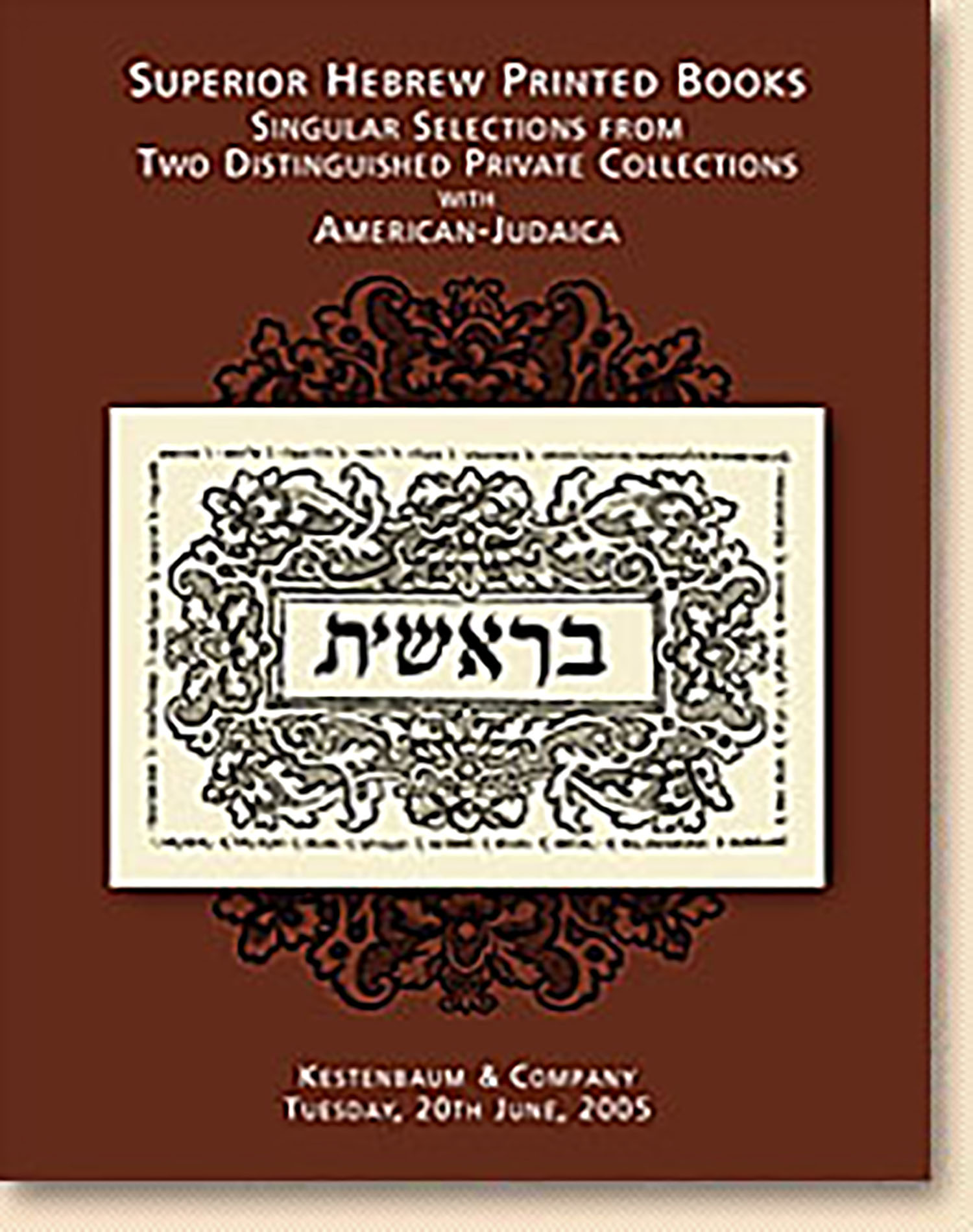Form of Prayers, According to the Custom of the Spanish and Portuguese Jews. Hebrew and English on facing pages. Translated by David Levi

AUCTION 29 |
Monday, June 20th,
2005 at 1:00
Superior Hebrew Printed Books: Singular Selections from Two Distingushed Private Collections with American-Judaica.
Lot 66
(ANGLO-JUDAICA)
Form of Prayers, According to the Custom of the Spanish and Portuguese Jews. Hebrew and English on facing pages. Translated by David Levi
London: 1789-93
Est: $10,000 - $15,000
First edition of Levi’s translation. Extremely rare. Only one complete set recorded.
While struggling as a common laborer, David Levi of London (1742-1801) excelled in his Jewish studies to the extent that he emerged as the greatest Anglo-Jewish apologist and translator. His six-volume Hebrew-English edition of the liturgy, Form of Prayers (1789-93), is generally considered his most important translation effort. Levi, however, also conceived of it as a tool for his apologetics. While he was generally preoccupied by his debate with non-Jewish deists and philosophers, his Form of Prayers indicates that the deism had infiltrated the Anglo-Jewish community as well. “Most striking” about Levi’s translation, according to Professor David Ruderman (Jewish Englightenment in an English Key, p. 233), was the “critical need not only to translate, but also to explain and justify . . . The translator had to translate in a way that brought to the surface the spiritual value and continuing relevance of the service in general.” For example, Levi included a note in the Hagadah (contained in the Passover volume) to prove to Jewish free-thinkers the veracity of the miraculous account of the exodus from Egypt.
Levi was convinced of the imperative to publish Form of Prayers by “the most respectable Portuguese Jews . . . alledging [sic], that all attempts hitherto made towards anything like a translation of their prayers into English . . . has been executed in a manner so faulty, so defective and erroneous, as tended rather to bring disgrace on the service, than to recommend, and explain it” (Vol. I, p. 5-6). The unnamed subject of this caustic critique was Alexander Alexander, the editor of the only earlier translation (1771).
When American Jews began to issue their own editions of the prayers a generation later, they used Levi’s translation. Isaac Leeser, the first to issue an American edition of the complete liturgy, even declared: “I would have discarded altogether Mr. Levi’s version were it not that many ladies, not familiar with the Hebrew, have been for years in the habit of using Mr. L.’s books” (Occident 19.9 [Dec. 1861], p. 432). In England too, only Levi’s text was utilized by later translators. Even Alexander’s son announced that he would use Levi’s work when preparing an edition for schools.
The passage of time did little to erase the perceived gap in quality between Alexander and Levi. Simeon Singer, the pioneering researcher of Anglo-Jewish liturgy, concurred with Levi more than a century later when he wrote: “I am sorry to say Alexander translated [the liturgy] . . . It was a melancholy performance. Indeed, it almost seems as if the worst literary service ever rendered to the Portuguese was done by an Ashkenazi, and, as an Ashkenazi, I feel inclined to apologize to them” (Transactions of the Jewish Historical Society of England, Vol. III).
The only known complete set of this rare edition is in JNUL. It is not in JTS and HUC; NYPL and the Library of Congress have Vol. I only; the British Library has Vols. I-II only; Harvard has Vols. I and VI only. The present copy is complete; it belonged to Miss. S.D. Lindo
